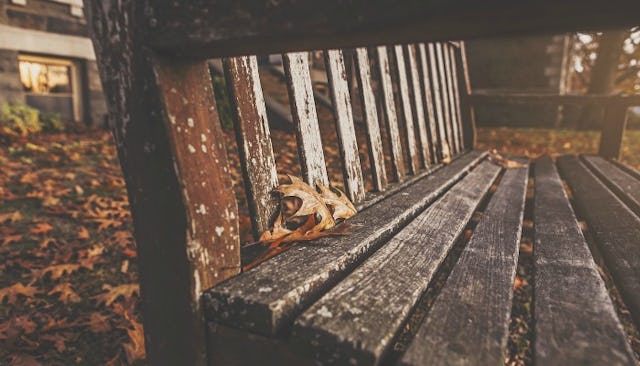Why I'm Giving My Introverted Child Alone Time

I write these words from my laptop as I sit at my kitchen desk. My 11-year old daughter is reading in the living room in our box-roomed house. She told me she wants alone time, and I’m glad. We used to live in a house with an open floor plan — the type where the living room, dining room, and kitchen create a continuous space. For a family of introverts, a home with separate rooms offers multiple areas to retreat.
There’s a fading photograph of me when I was 10 years old washing dishes. I’d never heard of the phrase “alone time,” but knew I didn’t want to be among a room full of people making small talk. As an introverted child, my only means of escape was to go into the kitchen.
As a child, I didn’t know the word introvert existed — a word I would later discover described me. Sometimes the meaning of a word helps make sense of a life. I never believed there was something inherently wrong with me, but no longer did I feel shame that social situations drained me and being alone revived me.
Several years ago, the sitter phoned and said, “I can’t find your daughter.”
“You lost her?” I asked.
I remained on the phone for several minutes, slightly panicked, as the sitter searched the house for my daughter. The sitter found her hiding in a cabinet under the bathroom sink. While the sitter was understandably upset, I wondered if my daughter also had an innate need to be alone.
As my daughter grew older and became more involved in social activities, I realized she needed to unwind after preschool, gymnastics, or any other activity that required her to interact with people. My husband and I decided to intentionally carve out time in our schedules for her to be alone. Our introverted child needs her space; we need our space, individually.
When I was the same age that my daughter is now, I walked down the road to my grandparents’ house, carrying a blanket and a jar of peanuts. Hiding behind trees in their yard made me feel better, somehow recharged, although I didn’t use that specific word to describe how being alone made me feel. Knowing I needed to be alone and figuring a way to be alone was instinctual. I returned home, and no one knew I’d momentarily vanished and my grandparents never knew I’d used their yard to escape.
Once in seventh grade when my classmates headed to the cafeteria, I stayed behind in the classroom. I hid under a table, knowing my teacher could possibly return to the classroom, which he did. I tried my best to not make a peep, and was successful for several minutes, but eventually my teacher sensed someone’s presence.
“Who’s there?” he asked.
When I didn’t respond, he walked over to the table, crouched down and saw me.
“I don’t appreciate you sneaking around,” he scolded as he shooed me out of the room.
Sneaking around wasn’t my intention. Maybe if he’d asked me the reason I decided to hide in the classroom, maybe I would’ve told him.
The other day I asked my husband, also an introvert, “When did you first learn about the meaning of the word ‘introvert?’”
“Probably not until college,” he told me.
“Me too,” I said.
“People didn’t talk about feelings when we were kids, not like we do now.”
“You’re right,” I responded.
Unlike my daughter, I never told my parents that I needed to be alone. The everyday pace of my childhood was slower. Many of my days consisted of unstructured events, plenty of time to figure out how to be alone, if needed. There was time for my sister and me to freely play, ride our bikes, or read. My father spent his free time gardening and my mother loved to sew. My childhood family generally had plenty of moments for individual solitude. So maybe that’s why we never talked about the desire to be alone.
For me, finding a way to occasionally be alone remains instinctive. Even now, I’ll slip away from people at parties and head to the kitchen to scrub grease from a pot. Inevitably, the host of the party will say, “You don’t need to do that.”
I want to say, “Oh, yes, for my sanity, I do need to do this,” or “I like spending time with you, but sometimes I must be alone.”
And when my daughter wants to be alone, I understand.
This article was originally published on